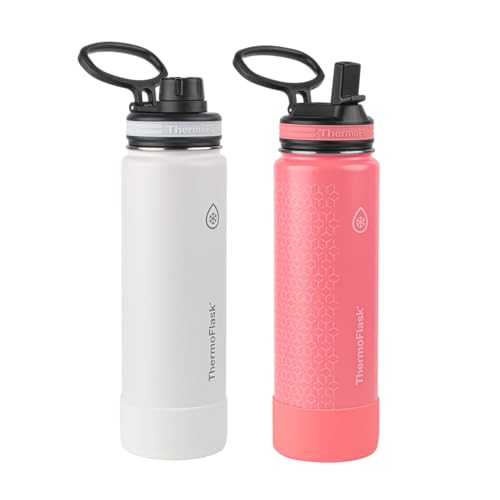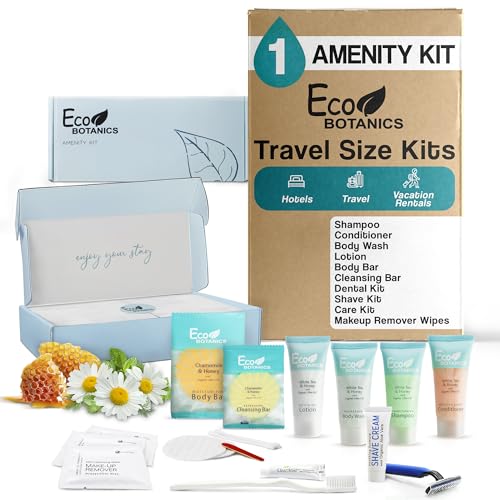Introduction to Eco-Friendly Packing
As the world continuously grapples with environmental challenges, the travel industry is beginning to recognize the significance of sustainable travel practices. Eco-friendly packing stands at the forefront of this movement, urging travelers to consider their impact on the planet while enjoying their journeys. More than ever, individual travel choices can significantly affect environmental sustainability, as the accumulative effect of countless travelers can lead to substantial changes in resource consumption and waste generation.

Eco-friendly packing encourages travelers to make thoughtful decisions regarding the items they bring on their trips. It includes selecting products that have minimal environmental impact, reducing the use of single-use plastics, and opting for alternatives that promote sustainability. By integrating eco-friendly packing strategies, travelers not only minimize waste but also contribute to a broader commitment to preserving the environment for future generations.
Each element of a traveler’s packing list holds the potential to either harm or protect the planet. For instance, reusable containers and eco-friendly toiletries can replace their disposable counterparts, significantly reducing the amount of plastic waste generated during travel. Furthermore, conscious packing can also extend to clothing choices, where travelers can opt for sustainable fabrics and versatile garments that reduce the number of items they need to bring.
By adopting eco-friendly packing practices, travelers can engage in responsible tourism that prioritizes the well-being of local ecosystems and communities. As the awareness of the environmental impact of travel grows, so does the significance of packing sustainably. In the subsequent sections, we will delve deeper into various essential items that every responsible traveler should consider incorporating into their packing routine to ensure they travel in harmony with the environment.
The Importance of Reusable Water Bottles
Traveling presents unique challenges for eco-conscious individuals, particularly in the area of hydration. The significance of using reusable water bottles cannot be overstated, especially when considering the environmental toll of single-use plastic bottles. Each year, millions of plastic bottles end up in landfills and oceans, contributing to pollution and harm to wildlife. By opting for a reusable water bottle, travelers can significantly reduce their plastic footprint and promote sustainable practices while enjoying their adventures.
Carrying your own water bottle not only benefits the environment but also enhances your travel experience. Many locations now offer refill stations in airports, hotels, and public parks, making it easier to stay hydrated without purchasing bottled water. This approach not only saves money but also supports local efforts to reduce plastic waste. Furthermore, a high-quality, insulated reusable water bottle can keep beverages cold or hot for extended periods, providing convenience and satisfaction throughout your journey.
When selecting the right reusable water bottle, several factors should be considered to ensure it meets your travel needs. Size is crucial; a bottle that fits comfortably in your bag and provides adequate hydration is essential. Opting for materials like stainless steel, glass, or BPA-free plastic is advisable; these materials are durable, non-toxic, and better for the environment than their single-use counterparts. Additionally, insulation features can greatly enhance usability; look for double-walled designs that maintain the temperature of your drinks, whether you prefer iced coffee or warm herbal tea. Ultimately, committing to reusable water bottles is a simple yet impactful step every traveler can take toward a more sustainable lifestyle.
Zero-Waste Kits: Your Travel Companion
As the movement toward sustainable travel gains momentum, the concept of zero-waste kits has emerged as an essential component for conscientious travelers. These kits aim to reduce waste by using reusables instead of single-use items, significantly decreasing the environmental footprint of your journeys. A well-curated zero-waste kit typically contains reusable utensils, straws, napkins, and containers. Each item plays a specific role in fostering eco-friendly habits while you are on the road.
First and foremost, reusable utensils are crucial. Made from materials like stainless steel, bamboo, or even plant-based composites, they replace plastic cutlery that is commonly used during travel. Including a compact set of utensils—fork, knife, and spoon—ensures you are always prepared for meals, whether you are dining out or enjoying snacks during a hike.
Straws are another item that can significantly reduce plastic waste. Opting for a stainless steel or silicone straw can make a difference, especially in settings where disposable straws are prevalent. Many reusable straws come with carrying cases, making them convenient to transport without occupying too much space in your bag.
Alongside utensils and straws, a set of reusable napkins is beneficial. Cloth napkins made from organic materials can be easily washed and used repeatedly, preventing the need for paper napkins that contribute to deforestation and landfill waste. Similarly, reusable containers are indispensable for carrying food and leftovers, curbing excessive packaging waste often generated from takeout meals.
Lastly, numerous brands offer compact, travel-friendly options for zero-waste kits, ensuring that being eco-conscious does not come at the cost of convenience. Retailers and online platforms specializing in sustainable goods provide a plethora of choices that fit seamlessly into your travel routine. From minimalist kits to customizable sets, there is no shortage of resources available to help travelers assemble their ideal zero-waste kit.
Ethical Clothing for Travelers
In recent years, the movement towards sustainable travel has surged, encouraging travelers to be more mindful of their clothing choices. Selecting ethical clothing not only supports fair labor practices but also reduces environmental impact. Ethical brands often prioritize sustainable fabrics, such as organic cotton, bamboo, and recycled materials, which are less resource-intensive compared to conventional textiles. These materials tend to require less water and fewer chemicals in their production process, thereby minimizing their carbon footprint.
Supporting brands that align with ethical values means investing in companies that commit to fair wages, safe working conditions, and environmentally responsible practices. By prioritizing these brands, travelers not only wardrobe their journeys sustainably but also contribute to a greater system of responsible consumerism. Additionally, purchasing ethical clothing often means buying items that are crafted to last, which in turn creates less waste over time. This practice encourages a shift toward quality over quantity, an essential step in moving away from the fast-fashion mentality that has greatly impacted our planet.
When assembling a travel wardrobe, versatility is key. Travelers can maximize their packing efficiency by opting for pieces that can be mixed and matched, allowing for numerous outfit combinations. A capsule wardrobe consisting of a few well-chosen items in coordinating colors can be both stylish and functional, catering to different occasions throughout the trip. Consider including multi-functional clothing, such as a dress that can transition from day to evening wear or pants that convert into shorts. Such choices not only reduce the total amount of clothing needed but also ensure comfort without sacrificing aesthetics. By making informed choices about their clothing, travelers can fully embrace an eco-friendly lifestyle while exploring the world around them.
Sustainable Toiletries: Eco-Friendly Hygiene Products
As environmental awareness continues to rise, responsible travelers are increasingly seeking sustainable toiletries to ensure their journeys are eco-friendly. The use of eco-friendly hygiene products not only helps reduce plastic waste but also aligns with a more sustainable lifestyle while traveling. One of the simplest options is biodegradable soap, which breaks down naturally and does not harm marine life. Many brands now offer natural soaps free from harsh chemicals, making them ideal for environmentally-conscious consumers.
Another essential eco-friendly item is the bamboo toothbrush. Unlike conventional plastic toothbrushes that take centuries to decompose, bamboo toothbrushes are biodegradable and a sustainable alternative. Their production often relies on sustainable bamboo farming, making them both environmentally friendly and effective for maintaining oral hygiene. The switch to a bamboo toothbrush can significantly minimize plastic waste generated from personal care items.
Solid shampoo bars are another innovation worth considering. These bars eliminate the need for plastic shampoo bottles, which are commonly discarded after use. Solid shampoo bars are typically made from natural ingredients and are often more concentrated, meaning they last longer than liquid shampoos. Furthermore, they are lightweight and travel-friendly, contributing to a reduced carbon footprint during transportation.
For eco-conscious travelers seeking these sustainable toiletries, several online and local retail options are available. Health food stores often stock eco-friendly hygiene products, while specialty shops dedicated to green living provide a wider range of options. Additionally, various online retailers cater to sustainable goods, making it easy to access biodegradable soaps, bamboo toothbrushes, and solid shampoo bars before embarking on any adventure. Incorporating these eco-friendly products into your travel routine is a small but impactful step towards reducing environmental harm.
Choosing Eco-Friendly Travel Accessories
In recent years, the importance of sustainable travel accessories has gained significant traction among environmentally conscious travelers. Selecting eco-friendly travel accessories not only supports the planet but also enhances the overall travel experience. When considering options, travelers should prioritize products that are functional, durable, and crafted from sustainable materials.
Biodegradable travel organizers are a prime choice for those looking to maintain an environmentally friendly packing strategy. These organizers help keep belongings neat and easily accessible, while also ensuring that, at the end of their life cycle, they will break down naturally. Many of these products are made from recycled materials or organic fibers, making them an excellent option for responsible travelers.
Solar-powered chargers present another excellent eco-conscious alternative. These chargers harness solar energy, allowing travelers to power their devices without relying on traditional electrical sources. This energy-efficient solution not only reduces carbon emissions but also ensures that travelers can stay connected even in remote areas. Incorporating solar technology into travel accessories exemplifies a commitment to sustainable practices while providing reliable utility.
Additionally, fair-trade luggage offers a way to support ethical manufacturing practices. When purchasing luggage, travelers can select options produced under fair-trade standards, which guarantee that the artisans involved receive fair wages and work under safe conditions. By choosing these types of travel accessories, individuals contribute positively to the global economy and promote sustainable development.
In summary, the selection of eco-friendly travel accessories plays a vital role in promoting sustainable travel. By opting for biodegradable organizers, solar-powered chargers, and fair-trade luggage, travelers can enhance their packing experience while being mindful of environmental impacts. These choices reflect a growing awareness of the need for responsible travel practices and foster a more sustainable future for all.
Smart Packing Techniques for Sustainability
In an era increasingly focused on sustainability, the art of packing presents a crucial opportunity for responsible travelers to minimize their environmental impact. One of the primary strategies for eco-friendly packing is to pack light. This approach not only reduces the weight of luggage, which subsequently decreases carbon emissions during travel, but also encourages thoughtful selection of clothing and essentials. Packing fewer items forces individuals to choose versatile clothing pieces, which can be mixed and matched for various occasions, thus optimizing space and minimizing the volume of products taken on a trip.
Utilizing packing cubes is another effective technique that aids in maintaining organization and efficiency while promoting sustainability. These cubes help travelers compartmentalize their belongings, ensuring that they are not only able to pack more efficiently but can also keep track of what is packed. By doing so, travelers are less likely to overpack or forget essential items. Moreover, the compact nature of packing cubes allows for maximum usage of space, which can translate to less overall luggage, further reducing the carbon footprint associated with air travel.
Additionally, planning ahead plays a significant role in fostering eco-friendly packing habits. By conducting research on the destination’s climate and available resources, travelers can determine exactly what items are necessary, reducing the likelihood of impulse purchases made on the road. The availability of local necessities can further enhance a sustainable approach, as purchasing eco-friendly products upon arrival often negates the need for excess baggage. Therefore, embracing these smart packing techniques can significantly contribute to an eco-conscious travel experience while promoting responsible choices and minimizing waste. Implementing these strategies not only serves to enhance the travel experience but also aligns with the growing commitment to preserving our planet.
The Role of Digital Tools in Responsible Travel
In recent years, the advent of digital tools and applications has significantly transformed the landscape of responsible travel. With an increased emphasis on sustainability, these tools empower travelers to make environmentally conscious choices that align with their values. By integrating technology into the travel planning process, individuals can reduce their carbon footprint and contribute to more eco-friendly travel experiences.
One notable aspect of digital tools is the variety of applications available to help travelers locate eco-friendly accommodations. Platforms such as EcoBnB and Green Stay are designed to connect users with hotels and lodgings that prioritize sustainability. These apps provide essential information, including energy-efficient practices, waste management policies, and community engagement efforts, enabling travelers to choose options that promote responsible tourism.
Moreover, digital tools also facilitate the search for sustainable dining options. Apps like HappyCow highlight restaurants that offer plant-based and locally sourced meals, significantly contributing to reduced carbon footprints and supporting local economies. Such resources assist travelers in making food choices that are not only delicious but also environmentally mindful. This enhances the overall travel experience by allowing individuals to indulge in culinary offerings that reflect their commitment to sustainability.
Additionally, various digital platforms offer tips and recommendations for minimizing carbon footprints when planning trips. Tools like Carbon Footprint Calculator help travelers understand the environmental impact of various transportation methods, thus enabling them to make informed decisions. Whether opting for a train instead of a plane or choosing to carpool, these apps encourage adopting practices that lessen one’s environmental impact.
In conclusion, the role of digital tools in responsible travel cannot be overstated. They provide essential resources for locating eco-friendly accommodations, sustainable dining, and strategies for reducing carbon footprints, ultimately fostering a more conscientious approach to exploring the world. Utilizing these technological innovations makes it easier for travelers to align their journeys with sustainable principles, enhancing their travel experiences while promoting environmental stewardship.
Conclusion: Embrace Sustainable Travel
As the urgency of environmental issues becomes increasingly evident, the importance of adopting eco-friendly practices in all aspects of life, including travel, cannot be overstated. The journey toward sustainable travel begins with the conscientious choices travelers make when it comes to packing. By integrating environmentally responsible items into their travel kits, individuals can significantly reduce their ecological footprint while exploring new destinations.
This blog post has highlighted several essential eco-friendly packing items that every responsible traveler should consider. From reusable water bottles and cloth bags to sustainable toiletries, these products not only minimize waste but also promote a culture of sustainability. Moreover, incorporating biodegradable or refillable options contributes to the preservation of natural resources, reducing reliance on single-use plastics that perpetuate pollution.
Adopting these eco-conscious strategies helps travelers align their adventures with a collective responsibility towards our planet. Whether it is selecting ethically sourced travel gear or choosing accommodations that prioritize sustainability, each decision contributes to a broader effort to protect the environment. By being deliberate in our choices, we can foster a mindset of environmental responsibility that extends beyond travel, encouraging a lifestyle rooted in respect for our planet.
In conclusion, making the transition to sustainable travel practices is not only achievable but essential for fostering a healthier planet. By embracing eco-friendly packing strategies and advocating for responsible tourism, travelers can play a pivotal role in mitigating environmental degradation. It is neither about perfection nor radical changes; even small adjustments to one’s travel routine can create a ripple effect driving positive change. Therefore, commit to adopting at least a few eco-friendly items and methods in your next travel experience, and contribute to a more sustainable future for generations to come.












